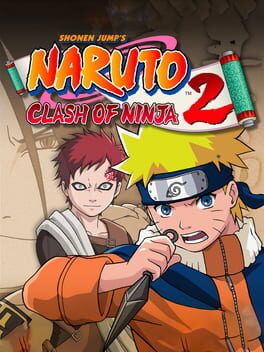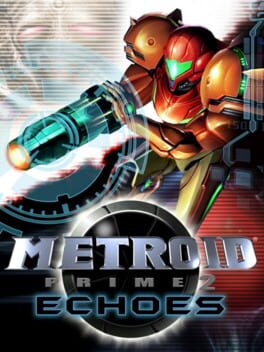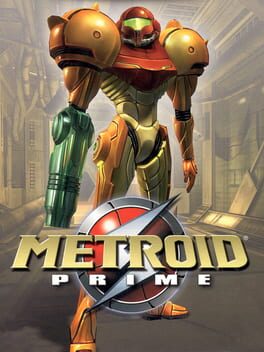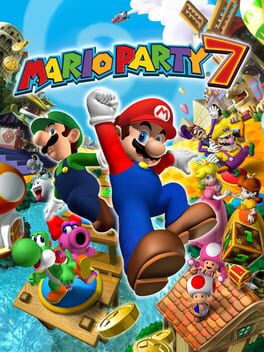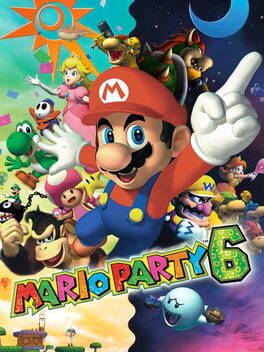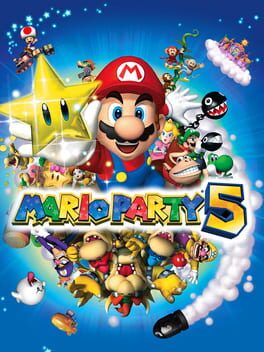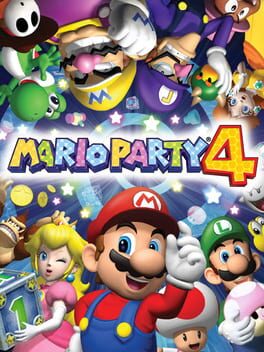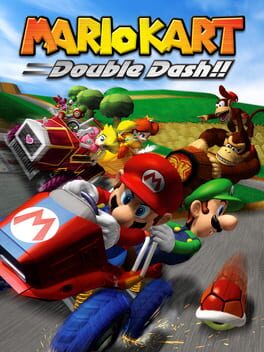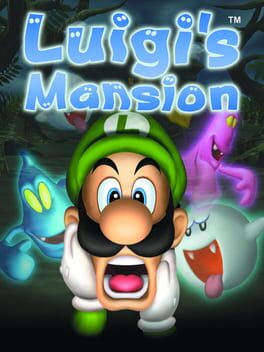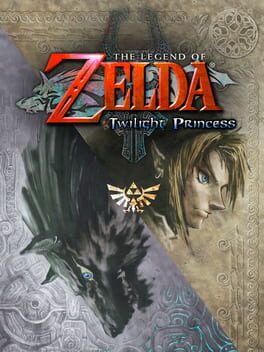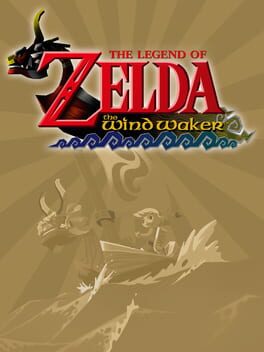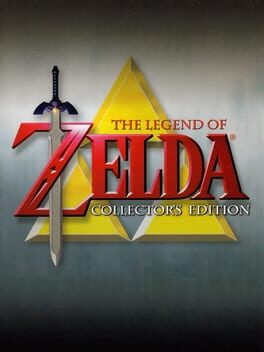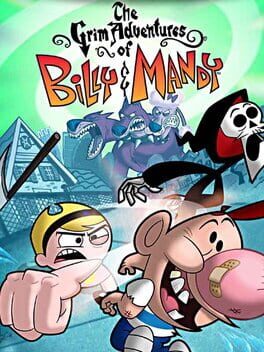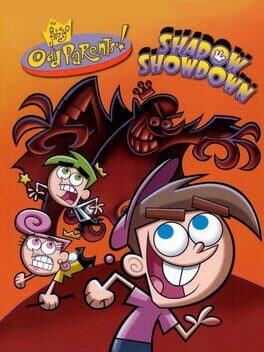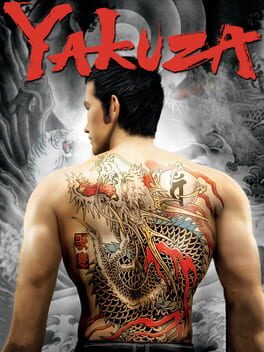GuffNFluff
Clash of Ninja 2 is one that I remember fondly as one of the many games I played with my father and my cousin on my cousin's GameCube. I still return to it on occasion to play it. It was fun unlocking all of the characters. While I have played the first game years ago, I no longer have it and remember virtually nothing about it, so no comparisons here. It was really enjoyable, but some may find the other Naruto fighting games such as Ninja Storm and the like more enjoyable as, from my understanding, they are more mechanically interesting. The only one I played, you guessed it, I cannot remember. My memory is bad, guys. It gets problematic.
Prime 2: Echoes is a fantastic follow-up to Prime. While still using the first-person perspective that Prime pioneered for the Metroid series, Echoes introduced several new mechanics that centred around the navigation of and combat on a planet that has the unique feature of existing in two planes of existence at once, with one world focused around light and the other darkness, sharing some features with one another and differing in others. Think like Hyrule and the Dark World in A Link to the Past. As such, the world that you explore essentially doubles.
The story once again is great, adding a bit more intrigue this time 'round. The music is fantastic in this one as well. Just like Prime 1, this game also has songs that reoccur in the Metroid games, the most notable being a version of Red Soil Wetlands in the Torvus Bog Subterranean area. Red Soil Wetlands is one of my favourite Metroid songs, of not my favourite. The final bosses of this game were a bit of a bitch to get through, but the game was still a lot of fun to play through. I even 100% it and got the Zero-Suit ending. I'm not sure if nowadays the Zero-Suit endings are still tied to how quickly you get through the game or if it's tied to completion percentage now, but one of those things did it here. Definitely worth a go.
The story once again is great, adding a bit more intrigue this time 'round. The music is fantastic in this one as well. Just like Prime 1, this game also has songs that reoccur in the Metroid games, the most notable being a version of Red Soil Wetlands in the Torvus Bog Subterranean area. Red Soil Wetlands is one of my favourite Metroid songs, of not my favourite. The final bosses of this game were a bit of a bitch to get through, but the game was still a lot of fun to play through. I even 100% it and got the Zero-Suit ending. I'm not sure if nowadays the Zero-Suit endings are still tied to how quickly you get through the game or if it's tied to completion percentage now, but one of those things did it here. Definitely worth a go.
2002
Those who have seen my reviews of other Metroid games will know how much I adore the series, to the point that I would consider Metroid-likes (I explained my use of this term in either an earlier Metroid review or a Castlevania review. My memory is rubbish, so I could not tell you for certain) my favourite genre. This game helped to solidify that. The Prime games take a unique approach to the Metroid formula that worked really well. It was decided that the transition from 2D to 3D for the Metroid series would take place by giving the games a first-person perspective. The way the mechanics of the first-person style worked lent itself well to the Metroid style of gameplay. The game features many familiar powerups and abilities from the series and introduced new ones.
The music in the game is wonderful. The music had an ambience to it that suited the environments they were a part of nicely and pairs well with the ambience the environments already have. We also see a return of some well-known Metroid songs, with the most notable probably being a version of Lower Norfair's music being used for the Magmoor Caverns area. The story is great and the game is a lot of fun. I intend to replay it soon. The recent remaster put the urge into me. It is definitely worth a go if you have not played it already. It's up to you if you want to go for the original or the remaster, but the remaster is likely more accessible.
The music in the game is wonderful. The music had an ambience to it that suited the environments they were a part of nicely and pairs well with the ambience the environments already have. We also see a return of some well-known Metroid songs, with the most notable probably being a version of Lower Norfair's music being used for the Magmoor Caverns area. The story is great and the game is a lot of fun. I intend to replay it soon. The recent remaster put the urge into me. It is definitely worth a go if you have not played it already. It's up to you if you want to go for the original or the remaster, but the remaster is likely more accessible.
2005
Mario Party 7 is my favourite of the GameCube Mario Party games. While there are things that make this distinct enough from the others to be memorable, in this case it may be mostly nostalgia. I do not recall if the ones before this one have a similar system, but this game has a system where you can unlock things using what is essentially a currency system where you get what some form of points that you can redeem to unlock new characters, a new board, the ability to taunt, and things like that. Mario Party 8 had. This system gives me motive to play the game even when there is no one to play it with, which may have contributed to further enjoyment of the game. This game also has a unique minigame type that makes use of the GameCube microphone, which was a peripheral that I don't think was used for anything outside of Mario Party 7 except maybe a select few other games. All in all. it's pretty good.
2004
Mario Party 6 is the start of where I can see things that start to make the games stand out more from each other. Mario Party 6 has an interesting board mechanic involving a day and night cycle that changed up how the game plays slightly, including some aspects of the board that vary depending on what board you play. I liked this one more than 4 and 5.
2003
2002
I'm not entirely sure how I'm going to review these and I may forego it entirely. I can say that it is enjoyable but not my favourite of the GameCube ones. It takes quite a bit to make these games truly distinct from one another outside of just having different boards and minigames that are also unique from what came before, especially as more and more Mario Party games came into existence. It wasn't until peripherals came into play like the GameCube microphone for 7 and motion controls for 8 and also board mechanic overhauls in the much later ones that things started to feel distinctly different. As an example of how samey these start to feel, I often forget which one is 4 and which one is 5. They are really interchangeable in my mind. Take of that what you will in regards to both 4 and 5 in how I would rate them, 'cos even I'm not sure how to feel.
2001
Here we are at Luigi's Mansion, the game that I consider my favourite GameCube game. I am not fully sure how to explain it, I usually struggle to explain my preferences, but this game hits all the right notes for me. It looks great, it plays well, has great music, and it is very replayable. You also play as Luigi, so what's not to love? The story and gameplay are unique and it makes for a solid experience. I enjoy finding the secrets and getting the A-rank each time. It's just...so good.
Twilight Princess. Yet another fantastic entry and another of my top 5 Zelda titles. Twilight Princess is the only Zelda game to date that has a Teen rating (For individuals of the European variety, it is rated PEGI 12 like most Zelda games were since the creation of the rating system) and it does use that rating well. It has the more realistic look and feel and somewhat dark tone that people have been wanting since the Space World 2000 trailer I mentioned in the Wind Waker review. The game is incredible. It looks great, although there were places where the bloom was blinding. It didn't happen too often and it could have just been my CRT acting weird, so it's not something I fault it for.
The swordplay is easily the best in the series (I cannot speak for the Wii version's motion controls as I have the GameCube version, hopefully they weren't rubbish). For starters, Link can swing the sword while moving. In other words, unlike the earlier games where using the sword while walking makes Link briefly stop moving to swing the sword, here he can just keep moving. It makes clearing grass without using the spin attack less tedious. The sword can be used on horseback, which added a new layer of depth when fighting in horseback. The hidden skills are cool and expands your capabilities as a fighter. As one of the many references or callbacks to the earlier Zelda titles, the Finishing Blow, Back Slice, and Helm Splitter hidden skills are parry abilities Link had in Wind Waker. A neat little feature is that if you sheathe the sword soon after defeating an enemy, Link will do a special animation. It's the same one that plays after defeating a boss.
The music is, how shall I put this, fucking phenomenal. The music of Twilight Princess is distinct in that it has a distinct motif that can be heard throughout the soundtrack. Regardless of how familiar you are with the individual songs, you'll KNOW when what you're listening to is from Twilight Princess. Aside from series staples like Zelda's Lullaby and the Hyrule Castle theme, there are references to songs from Ocarina of Time and Majora's Mask that you do not see return in later games. The howling stones play mostly songs that were played on the ocarina in the N64 games and the Serenade of Water plays when talking with the ghost of the Zora Queen. There are so many wondrous tracks in this one. The night theme of Hyrule Field is haunting yet beautiful and at the time of typing this review I am learning to play Midna's Lament.
So yeah. Top 5. I cannot recommend it enough. A must play.
The swordplay is easily the best in the series (I cannot speak for the Wii version's motion controls as I have the GameCube version, hopefully they weren't rubbish). For starters, Link can swing the sword while moving. In other words, unlike the earlier games where using the sword while walking makes Link briefly stop moving to swing the sword, here he can just keep moving. It makes clearing grass without using the spin attack less tedious. The sword can be used on horseback, which added a new layer of depth when fighting in horseback. The hidden skills are cool and expands your capabilities as a fighter. As one of the many references or callbacks to the earlier Zelda titles, the Finishing Blow, Back Slice, and Helm Splitter hidden skills are parry abilities Link had in Wind Waker. A neat little feature is that if you sheathe the sword soon after defeating an enemy, Link will do a special animation. It's the same one that plays after defeating a boss.
The music is, how shall I put this, fucking phenomenal. The music of Twilight Princess is distinct in that it has a distinct motif that can be heard throughout the soundtrack. Regardless of how familiar you are with the individual songs, you'll KNOW when what you're listening to is from Twilight Princess. Aside from series staples like Zelda's Lullaby and the Hyrule Castle theme, there are references to songs from Ocarina of Time and Majora's Mask that you do not see return in later games. The howling stones play mostly songs that were played on the ocarina in the N64 games and the Serenade of Water plays when talking with the ghost of the Zora Queen. There are so many wondrous tracks in this one. The night theme of Hyrule Field is haunting yet beautiful and at the time of typing this review I am learning to play Midna's Lament.
So yeah. Top 5. I cannot recommend it enough. A must play.
The Wind Waker. Another one of my top 5 Zelda titles. Everything is great about this game. The art style, the gameplay, the fucking music, everything. It's a crime that the game did not sell well when it released, but I do understand why, even though it is wickedly unfair. Back when the GameCube first was announced at Space World 2000, there were a lot of clips that showed off the technical capabilities of it. You had Super Mario 128, a scene that was basically a test concept of Luigi's Mansion, footage of Samus running in a full 3D environment, things like that. Among them was a brief scene in which we see Link, 3D rendered with a similar design to Ocarina of Time but updated with GameCube graphics, facing off against Ganondorf. People got extremely excited for it, thinking that the next Zelda title will be a much darker or more realistic game. Do keep in mind that the last console Zelda title was Majora's Mask, one of the darkest Zelda games out there if not the darkest. It was a reasonable assumption. So when people started to see trailers for The Wind Waker, they were extremely pissed. The look of the game made people think that Zelda was taking a step backwards and becoming a game for children. It received an unwarranted amount of hate. It definitely has a more cartoonish look, but it still plays like a Zelda game, 'cos that's exactly what it is. The gameplay was unchanged. It's still Zelda. It is a bit unfair to judge it on it's design.
Anyway, the game is good. The cel-shading suits the art style really well and looks fantastic. The music is also wonderful. I especially like how the theme of the game is the Earth God's Lyric followed by the Wind God's Aria with the Legend of Zelda theme mixed in. Anyway, it is a fantastic game and it is nice to see the game getting the praise it deserves nowadays. Still feels weird to hear the game being called "vintage". I may never get over that.
Anyway, the game is good. The cel-shading suits the art style really well and looks fantastic. The music is also wonderful. I especially like how the theme of the game is the Earth God's Lyric followed by the Wind God's Aria with the Legend of Zelda theme mixed in. Anyway, it is a fantastic game and it is nice to see the game getting the praise it deserves nowadays. Still feels weird to hear the game being called "vintage". I may never get over that.
The Legend of Zelda: Collector's Edition is a unique collection of Zelda games that was packaged with the GameCube. It contains ports of The Legend of Zelda, Zelda II: The Adventure of Link, Ocarina of Time, and Majora's Mask, a demo of Wind Waker which is specifically a few minutes to work through Dragonroost Temple, and a short video that serves as a retrospective for the series up to that point. It's nice to be able to play these on a GameCube, but the Ocarina of Time port is fully censored (I will explain) and the Majora's Mask port is rubbish. Majora's Mask has an ungodly horrible framerate which is how I imagine the game runs on an N64 if you don't have the memory expansion installed in it. Ocarina of Time has had several versions throughout the course of its existence, each making slight changes. The second version of Ocarina of Time removed the Islamic chant from the Fire Temple's music and a third version made Ganondorf's blood green. The Collector's Edition version has those same changes, the redesigned Gerudo emblem, and removed the blood that was seen on the floor in different places under the well and in the Shadow Temple. I'm lucky enough in that my copy of Ocarina of Time is the first version, Islamic chant and all.
Anyway, it's good and is a great means to play these Zelda games if you're unfazed by the censorship of Ocarina of Time. You are better off playing Majora's Mask elsewhere, however.
Anyway, it's good and is a great means to play these Zelda games if you're unfazed by the censorship of Ocarina of Time. You are better off playing Majora's Mask elsewhere, however.
The game was okay. Just okay. The show itself was wonderful. This game is a fighting game but more of a party fighter, I guess you could say. It is a bit difficult to explain beyond calling it that. It's not a party fighter in the way that Smash is, it's its own thing. There is a story mode of sorts but there isn't a whole lot to it. There is also a "mission mode" in which you have to complete certain objectives under specific conditions and game modes, like capture the flag, stock battles, timed battles. that type thing. Completing these can unlock different characters, outfits, stages, and the like. Again, it's alright. Look into it if you wish.
This game is yet another 3D platformer. and it is one that I actually do like. Say what you will about Butch Hartman, milkshake duck him all you want, call him a cunt, whatever you fancy, but the show was good (at least early on before it went downhill) and so was this game. Though the characters are 3D-modeled, the way the game does it actually looks pretty decent and as far as Cosmo and Wanda go you don't get anything resembling the monstrosities of that hell spawn of a live action film. The environments have a certain look about them that fits the art style of the show really well. The music is decent and on par for what you would hear in the show. Look into it if you want. You may like it, you may not. I am not always the best judge when it comes to what can actually pass as good. I like GTA III more than the other 3D Universe GTA games for Christ's sake. Play it for yourselves and form your own opinions. You aren't sheep.
2005
The Yakuza games are a bit hard for me to explain or classify, but they certainly are unique. The Yakuza games themselves had a small audience for most of their existence, slowly getting more and more popular as time went on. As a result, the older games can be difficult to find. It is also why they stopped dubbing the games until they became more popular. The Yakuza games have a semi open-world structure. In the case of the first Yakuza and some others, it is part of a city. There are storyline missions and countless side quests. The combat is fun and you level different aspects of your character (In this case Kazuma Kiryu) that can improve your overall abilities and health using experience points you gain from side quests, story missions, encounters and even things like eating and drinking different things. The story is intriguing and has some mystery behind it. It was a lot of fun and a series worth getting into.
